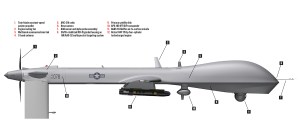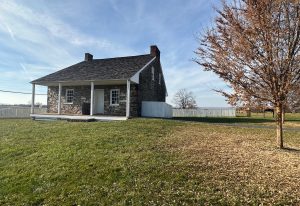
Burton’s distinctive water still produces some of England’s best beer.
For more than two centuries, “Burton” meant “beer” in the United Kingdom just like “Hollywood” meant “movies” in the United States. Burton accounted for a quarter of all beer production in the UK, including some of the country’s largest and best-known brands, and its innovations in the brewing industry, imitated worldwide, carried the names “Burtonization” and the “Burton Union System.” Then, suddenly, it stopped. The surprise was akin to the Hollywood studios being bought out by European television stations and moved to Iowa. It was unimaginable—yet it had happened.
Properly named Burton upon Trent, Burton is a small industrial city in the West Midlands with an area population (including adjacent suburbs) of about 60,000. It was never much bigger than that even in its heyday. Like nearby Derby, it’s fairly far removed from the motorway system, and the motorway’s nearest junctions are unmarked as you zip between Manchester and Birmingham. Its small size and out-of-the-way location might make one wonder how it ever become prominent in the first place.
Emma Gilleland, Marston’s Head Brewer, has no doubts: “It’s the water.” Marston’s, the world’s largest producer of cask ale, is the only remaining major brewer of traditional English beer in Burton—in effect the winner of the Last Man Standing match that once included Bass, Worthington and Ind Coope.
Marston’s Burton plant, a sprawling Victorian compound of red brick and gray stone, has been their primary brewery since 1897. At its center is a fine little pub, the start and end of a factory tour, where their flagship Pedigree is always on tap. Sitting in the pub, Gilleland explains that Burton breweries get their water from artesian wells sunk deep into layers of gypsum-rich limestone, and minerals from the gypsum bring out the sharpness of the hops in ways that ordinary spring water cannot. “Unfortunately,” Gilleland adds, “by the late 19th century, chemists had figured out how to add these chemicals to whatever local water they had,” a process now known as Burtonization and very common in the industry. “Still, it’s not the same,” she said. “You still get the best beer from Burton water.”
Marston’s has a second advantage: it ferments its entire output of cask Pedigree in long series of wooden barrels known as Burton Union Sets. In this system, the beer is gently and continuously racked through a line of 24 wood casks, each containing 150 gallons, with the yeast separating naturally as a result. But the term “cask ale” doesn’t refer to barrel-aging; rather, it refers to beer that has never been filtered or pasteurized, and so contains its original live yeast and natural head. The Burton Union method is a superior way of achieving this.
Master cooper Mark Newton keeps the barrels in top condition, cleaning and scraping, repairing and replacing the white oak staves. A few decades ago the Burton Union system was common among Burton brewers, and Bass (then the largest brewery in the country) had hundreds of sets. Now Marston’s is the only commercial brewer in the world to use them.
[continued on next page]




